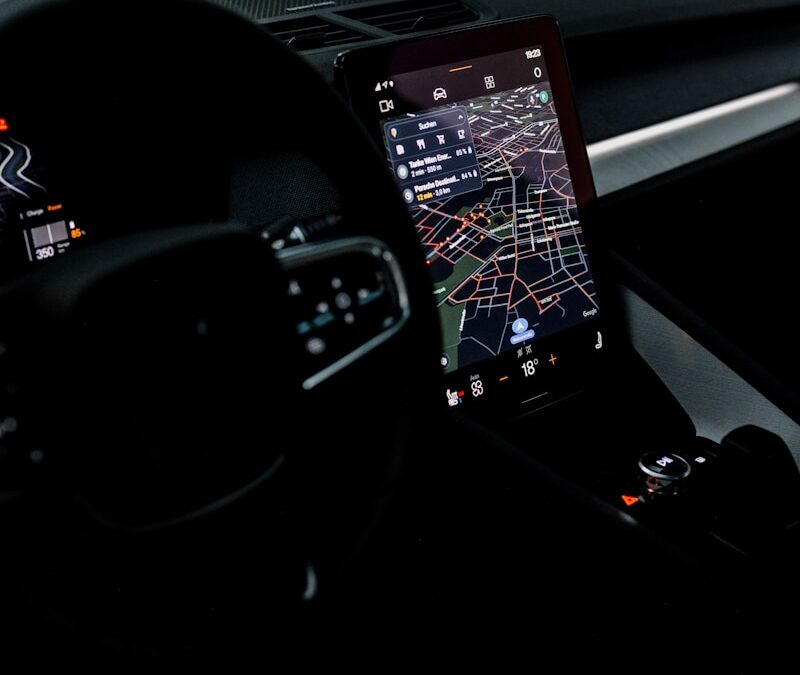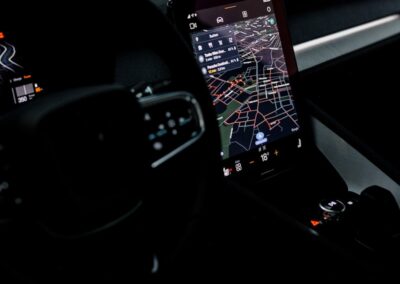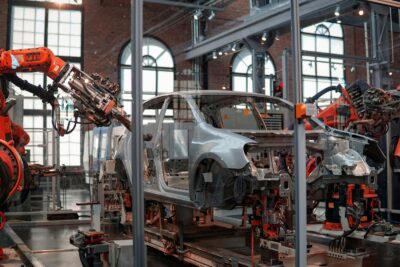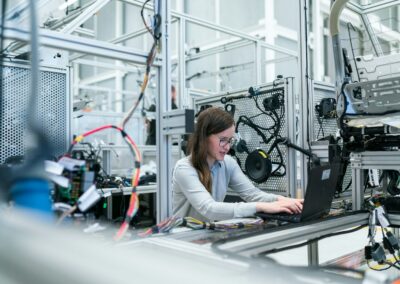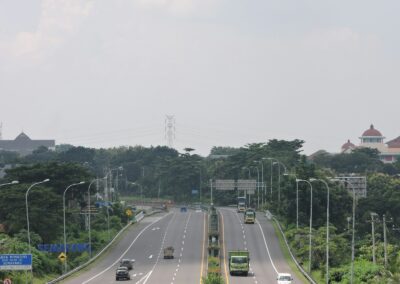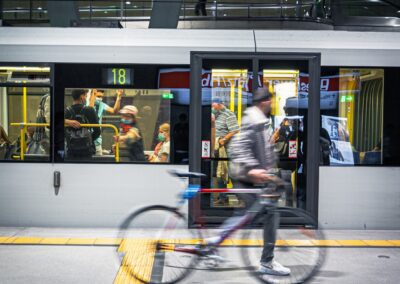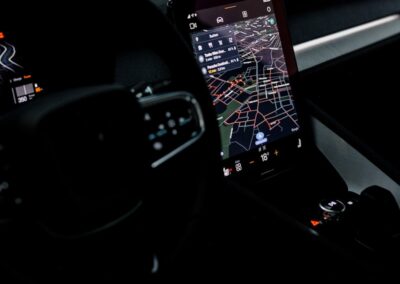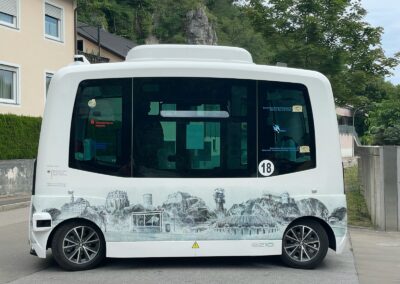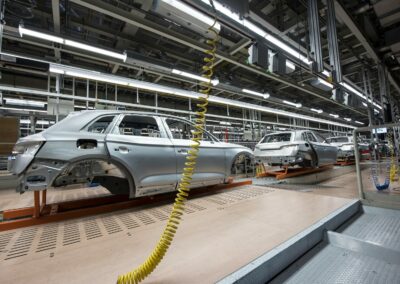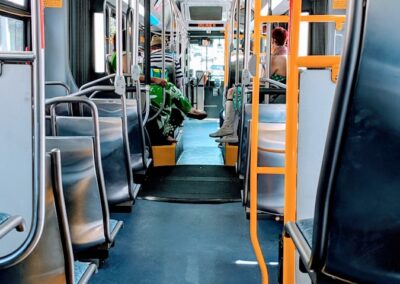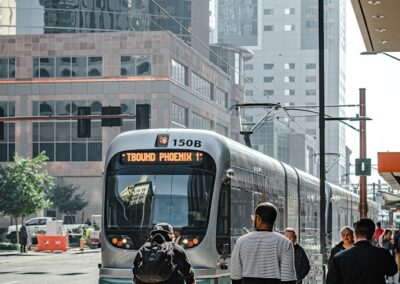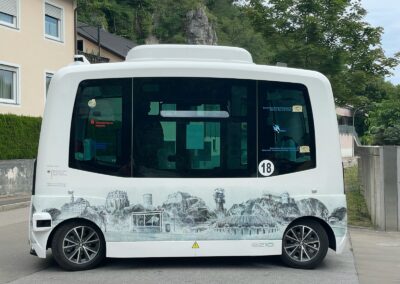Transforming Transportation in Saudi Arabia and the UAE with Autonomous Vehicles
The future potential of autonomous vehicle technology is set to revolutionize transportation systems, particularly in regions like Saudi Arabia and the UAE. As these nations strive to position themselves at the forefront of technological innovation, the integration of autonomous vehicles (AVs) presents an unparalleled opportunity to enhance urban mobility, reduce traffic congestion, and promote sustainable development. The cities of Riyadh and Dubai are already pioneering various initiatives to incorporate AVs into their transportation frameworks, signaling a significant shift towards smarter and more efficient urban landscapes.
Enhancing Urban Mobility and Reducing Congestion
Autonomous vehicles have the potential to drastically improve urban mobility by optimizing traffic flow and reducing congestion. In densely populated cities like Riyadh and Dubai, traffic congestion is a significant issue that impacts daily life and economic productivity. AVs, equipped with advanced sensors and AI-driven algorithms, can communicate with each other to coordinate movements and optimize traffic patterns, thereby reducing bottlenecks and improving the overall efficiency of road networks. This seamless coordination can lead to shorter travel times, reduced fuel consumption, and lower emissions, contributing to a cleaner and more efficient urban environment.
Promoting Sustainable Development
Integrating autonomous vehicles into the transportation infrastructure aligns with the broader goals of sustainable development in Saudi Arabia and the UAE. These countries are investing heavily in renewable energy sources and smart city technologies, making AVs a natural extension of their sustainability initiatives. Autonomous electric vehicles, in particular, offer a dual benefit of reducing greenhouse gas emissions and minimizing reliance on fossil fuels. By promoting the use of AVs, governments can support their commitments to environmental conservation and energy efficiency, creating a model for sustainable urban transportation that can be emulated globally.
Fostering Innovation through Strategic Partnerships
The development and deployment of autonomous vehicles require collaboration between various stakeholders, including government bodies, technology companies, and academic institutions. In regions like Saudi Arabia and the UAE, fostering such partnerships is crucial for driving innovation and ensuring the successful integration of AVs. These partnerships can facilitate the sharing of knowledge, resources, and expertise, accelerating the development of cutting-edge technologies and infrastructure. For example, collaborations between automakers, AI developers, and urban planners can lead to the creation of smart transportation systems that leverage the full potential of autonomous vehicle technology.
Reducing Human Error and Accidents
Human error is a primary factor in the majority of traffic accidents, accounting for up to 90% of incidents. Autonomous vehicles, with their advanced sensors, real-time data processing, and AI-driven decision-making capabilities, can eliminate many of these errors. AVs are not susceptible to distractions, fatigue, or impaired driving, and they can react to potential hazards more quickly and accurately than human drivers. In cities like Riyadh and Dubai, where high traffic volumes increase the risk of accidents, the widespread adoption of AVs can lead to a significant reduction in collisions and enhance overall road safety.
Implementing Advanced Safety Features
Autonomous vehicles are equipped with a range of advanced safety features that further enhance their ability to prevent accidents. These features include collision avoidance systems, adaptive cruise control, lane-keeping assist, and automatic emergency braking. By continuously monitoring the vehicle’s surroundings and making real-time adjustments, AVs can navigate complex traffic scenarios safely and efficiently. Additionally, the integration of AI and machine learning algorithms enables AVs to learn from past experiences and improve their performance over time, continually enhancing their safety capabilities.
Conclusion: A Collaborative Approach to a Safer and Smarter Future
In conclusion, the future potential of autonomous vehicle technology in transforming transportation and improving road safety is immense. By enhancing urban mobility, promoting sustainable development, and significantly reducing traffic accidents, AVs can play a transformative role in the transportation systems of Saudi Arabia and the UAE. Through strategic partnerships, advanced safety features, and the integration of cutting-edge technologies like AI and Blockchain, these regions can lead the way in adopting autonomous vehicles. This collaborative approach will not only enhance road safety but also create smarter, more efficient, and sustainable urban environments, setting a global standard for the future of transportation.
#AutonomousVehicles #TransportationTransformation #RoadSafety #SaudiArabia #UAE #Riyadh #Dubai #ChangeManagement #ExecutiveCoaching #EffectiveCommunication #BusinessSuccess #ManagementConsulting #ArtificialIntelligence #Blockchain #Metaverse #GenerativeAI #Leadership #ManagementSkills #ProjectManagement

